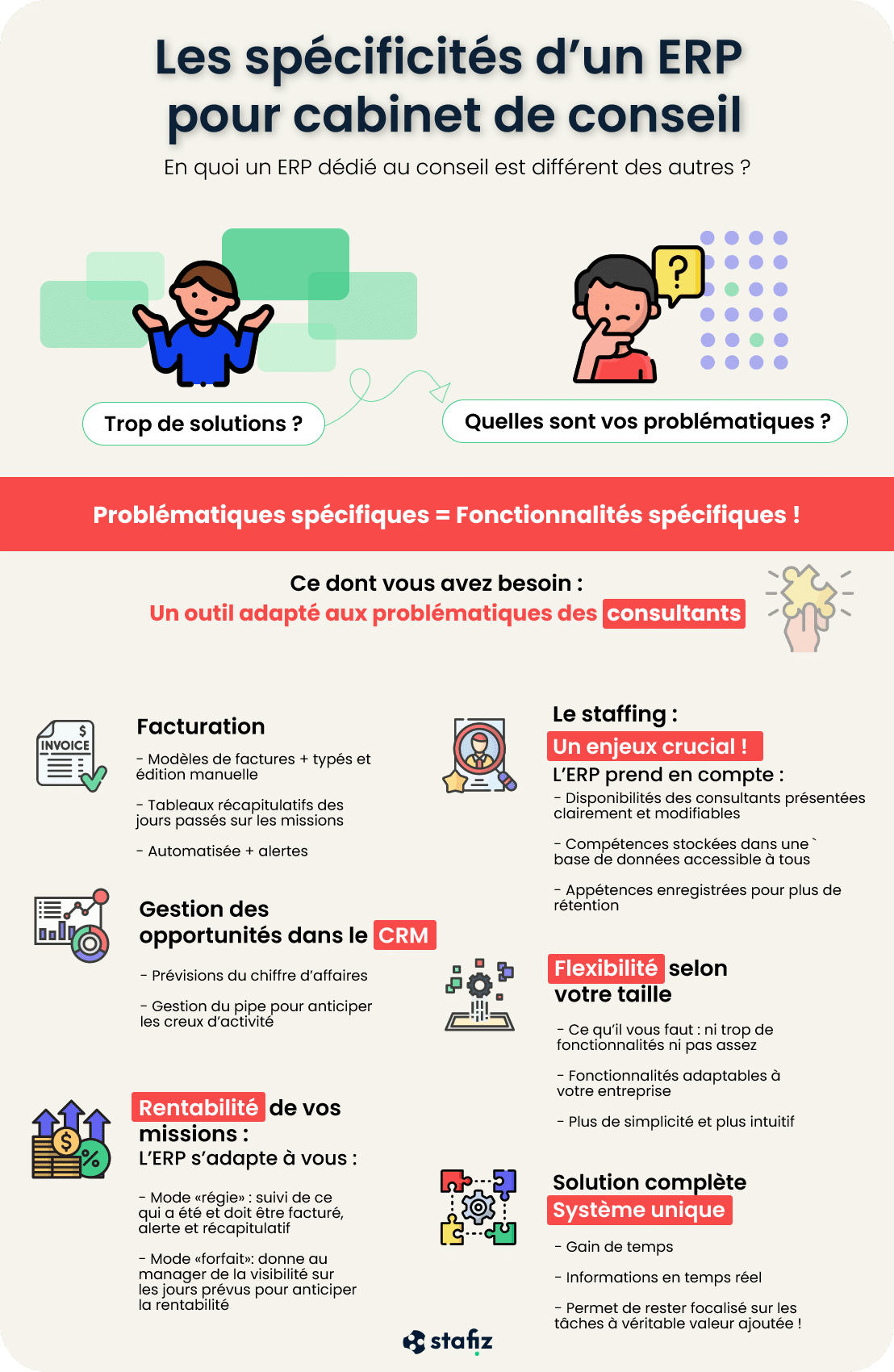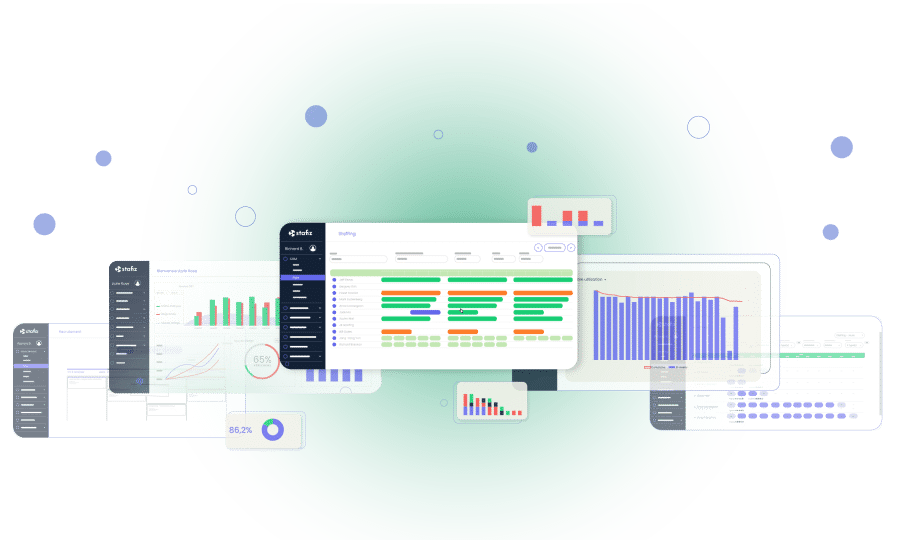Specificities of an ERP systems for consulting firms

There are several online solutions that are successful because they offer a large number of features, covering almost any function you need. They are a good foundational platform, but consulting firms have specific issues that need to be addressed more precisely.
But, how is an ERP dedicated to consulting firms different?

Specific features
The feature set is suitable for consulting firms, to varying degrees. For invoicing, for example, the invoice templates offered will be more typed and may include summary tables of the days spent last month on an assignment, for example.
The management of opportunities and proposals in the CRM will also be adapted to the consultants' problems, to give revenue forecasts and manage the "pipe" to anticipate business slumps.
But two areas in particular stand out and offer solutions that are very different from generic software:
Resource planning
This is a crucial issue for consulting firms; Several aspects must be taken into account:
- The availability of consultants: it is important to know which senior is available immediately to submit a proposal, and which junior will be available for 3 months for the new mission you have just signed. Good software should present this information clearly, and make it easy to modify during business meetings. resource planning Monday morning (or Wednesday if you do this on Wednesday.)
- Skills: it is not always easy to remember everyone's skills, and it may not even be possible to meet everyone if the firm is large. A good ERP should, therefore, record everyone's skills and make it possible to search for employees based on said skills.
- Desires: in order to help your consultants grow through challenging, engaging projects and to encourage their retention by assigning projects based on interest, it is necessary to record these desires and have constant access to them when making decisions.
In short, specific ERPs allow you to easily find an answer to this type of problem: "I'm looking for a senior consultant available for 2 months from next week, I want it to be an Excel crack because there will be a lot of modeling to do, and if we can avoid Jean, it's good because he wants to change clients" => the software should present you with a few options.
The Stafiz platform offers a module for managing resource planning Above all, dedicated to consulting firms and more broadly to professional services and service companies. More than 40,000 employees in 10 countries use it to manage their projects.
Project management
The second important aspect of consulting firms is project profitability, which can take shape in two forms:
- "Pay-as-you-go" mode: the client is billed for the number of days worked after a certain amount of time (e.g. the end of each month). It is, therefore, important that the software counts days (a pretty basic feature) and makes precise follow-ups on what has been invoiced and what remains to be invoiced (fees and expenses). Clear time summaries and billing alerts simplify managerial jobs.
- "Fixed price" mode: when you sell on a fixed price basis, you sell a result, and it is up to the manager to manage the balance between customer satisfaction (more days spent) and profitability (fewer days spent). The software must support managers with transparency of the total number of planned project days and forecast project financials.
A manageable amount of options
A second very important point is the right match between a sufficient number of features (and even a large one), and a simplicity of use that necessarily comes from a reduced number of features.
Consultants have enough work to do to build the future of their clients, and administrative tasks are sometimes neglected, in any case concentrated on a very limited number of functions (fees, confirmation of days,...). Even associates, who could have access to a large number of reports, only consult a very limited number of indicators.
A good ERP for a consulting firm must therefore manage all the features deemed essential by the company (plus a few additional features with good added value), select the few major indicators on each subject, and remain simple, intuitive and quick to use.
A lot of flexibility is important so that larger firms have all the features they are interested in, but smaller ones are not cluttered with buttons that they are not interested in.
All-in-one
The last important element is the completeness of the modules offered. Consulting firms, not finding a complete solution, are often forced to deal with incompatible solutions, one for time confirmation, the other for CRM, to export to payroll, etc.
Working in a single system ensures a consistent environment that saves everyone's time (including support functions that would otherwise have to do all the file transfers between systems). When all the information is available immediately, the discussion is easier and the teams are directly focused on the tasks with real added value.
To go further, read our white paper on operations management:
Stafiz is a modular or all-in-one ERP that allows you to manage your portfolio of projects and customers even more efficiently and profitably. Stafiz is primarily dedicated to consulting firms and more broadly to professional services.

